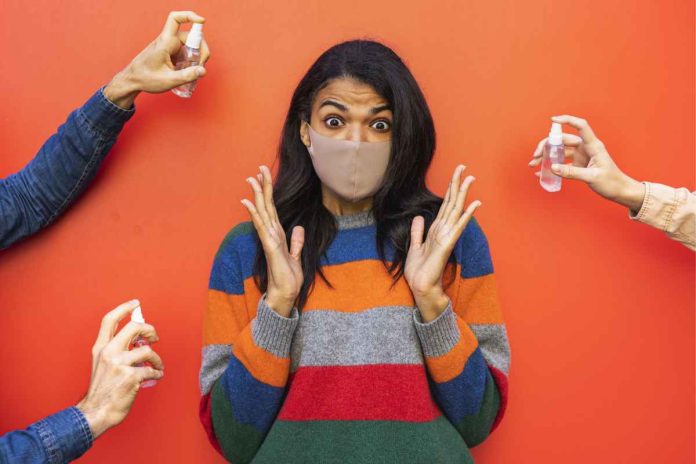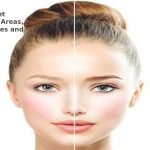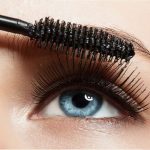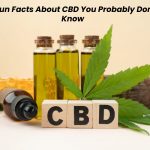rajkot update news this symptom of omicron appears only on the skin
rajkot update news this symptom of omicron appears only on the skin – As of my knowledge cutoff in 2021, there was no evidence to suggest that the symptoms of the Omicron variant of COVID-19 only appear on the skin. The symptoms of Omicron, like other COVID-19 variants, can vary widely and may include fever, cough, sore throat, body aches, fatigue, and difficulty breathing, among others. It is important to note that COVID-19 symptoms can be mild or severe, and some people may experience no symptoms at all but can still transmit the virus to others. If you have anxieties about your health or possible COVID-19 symptoms, it is best to consult a healthcare professional for guidance.
What is the Omicron variant of COVID-19?
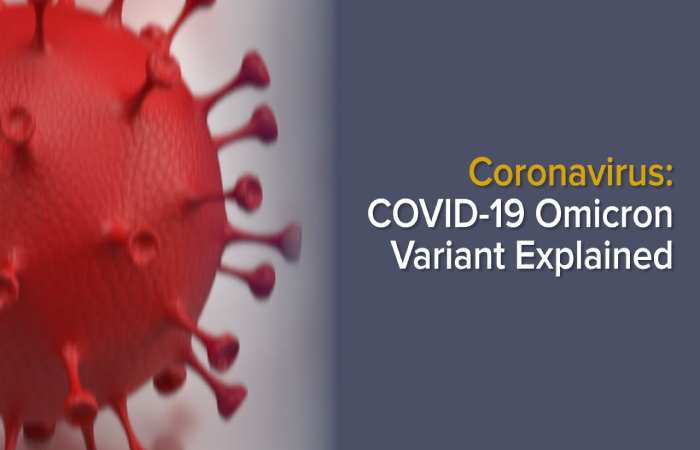
The Omicron variant of COVID-19 is a highly mutated strain of the SARS-CoV-2 virus, which causes COVID-19. It was first recognized in South Africa in November 2021 and has since spread to several countries around the world. The Omicron variant has a large number of mutations in the spike protein of the virus, which is the part of the virus that enables it to enter and infect human cells.
Some of these mutations may affect the transmissibility of the virus and its ability to evade the immune response, potentially leading to increased infectivity and the ability to infect people who have already been infected or vaccinated against previous variants.
The World Health Organization (WHO) has classified the Omicron variant as a Variant of Concern (VOC) due to its rapid spread and high number of mutations. However, more investigation is needed to fully comprehend the characteristics and impact of this variant on public health.
It is important to continue following public health guidelines, such as vaccination, wearing masks, practicing physical distancing, and washing hands frequently, to reduce the spread of COVID-19, including the Omicron variant.
What is Omicron?
Omicron is a note in the Greek alphabet, and it is also the name of a variant of the SARS-CoV-2 virus that causes COVID-19. The Omicron variant was first recognized in South Africa in November 2021 and has since been detected in several countries around the world.
The Omicron different has a large number of changes in the spike protein of the virus, which is the part of the virus that enables it to enter and infect human cells. Some of these mutations may affect the transmissibility of the virus and its ability to evade the immune response, potentially leading to increased infectivity and the ability to infect people who have already been infected or vaccinated against previous variants.
What sets Omicron apart from other COVID variants?
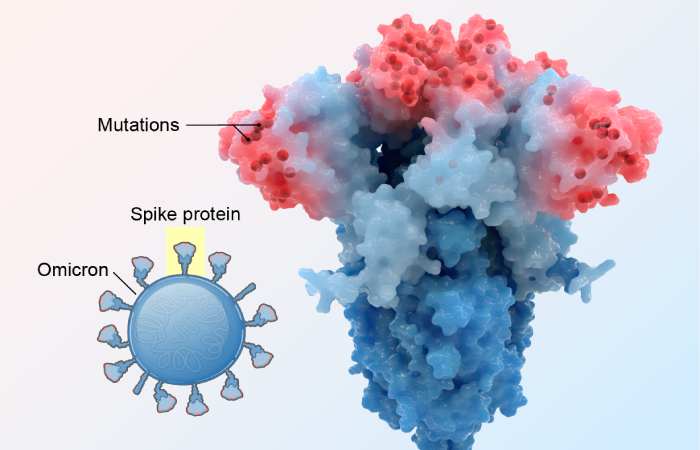
The Omicron variant of COVID-19 is distinct from other COVID-19 variants in several ways. The most notable difference is its unusually high number of mutations in the spike protein of the virus, which is the part of the virus that lets it to enter human cells and cause infection. This high number of mutations is concerning because it may impact the effectiveness of existing vaccines and treatments against the virus.
Studies suggest that the Omicron variant is highly transmissible, possibly even more so than other COVID-19 variants, and it may be able to evade some immune responses. This means that people who have previously had COVID-19 or who have been vaccinate may still be at risk of infection from the Omicron variant.
Other differences between the Omicron variant and other COVID-19 variants include its potential to cause a different pattern of symptoms, such as more frequent reports of headache, sore throat, and runny nose. However, more research is wanted to fully understand the clinical characteristics and impact of the Omicron variant on public health.
It is important to letter that the situation surrounding the Omicron variant is evolving rapidly, and scientists and health experts are closely monitoring its spread and characteristics. Public health measures, such as vaccination, wearing masks, practicing physical distancing, and washing hands frequently, remain important tools in controlling the spread of COVID-19, including the Omicron variant.
Known symptoms of Omicron

The known symptoms of the Omicron variant of COVID-19 may vary from person to person and may range from mild to severe. While more research is needed to fully understand the clinical characteristics of the Omicron variant, some of the reported symptoms include:
- Fever
- Cough
- Sore throat
- Headache
- Runny or stuffy nose
- Body aches
- Fatigue
- Difficulty breathing
It is important to note that about people infected with the Omicron variant may experience no symptoms or mild symptoms, while others may experience more severe symptoms that require hospitalization.
If you develop symptoms of COVID-19, including those associated with the Omicron variant, it is important to seek medical attention and follow public health guidelines, such as isolation and quarantine, to prevent the spread of the virus to others. Vaccination, wearing masks, practicing physical distancing, and washing hands frequently are also important tools in controlling the spread of COVID-19, including the Omicron variant.
The importance of getting vaccinate against Omicron
Getting vaccinate against COVID-19, including the Omicron variant, is an important tool in protecting yourself and others from the virus. While more research is wanted to fully comprehend the effectiveness of existing vaccines against the Omicron variant, studies suggest that vaccination can reduce the severity of illness, hospitalization, and death caused by the virus.
Vaccines work by stimulating the immune system to recognize and fight the virus, making it less likely that you will become infected or experience severe illness if you do become infected. While the Omicron variant may have mutations that impact the effectiveness of existing vaccines, vaccination can still provide some protection against the variant and is an important tool in controlling the spread of the virus.
In addition to inoculation, it is important to continue following public health guidelines, such as wearing masks, practicing physical distancing, washing hands frequently, and avoiding large gatherings, to reduce the spread of COVID-19, including the Omicron variant.
If you have concerns about the COVID-19 vaccine or its potential side effects, it is important to talk to a healthcare professional to get accurate information and guidance.
What are the skin symptoms of Omicron?
There is currently limited information about specific skin symptoms that may be associat with the Omicron variant of COVID-19. While some people infected with the Omicron variant may experience skin symptoms, such as rash or hives, these symptoms are not specific to the Omicron variant and can also occur with other variants of COVID-19.
It is important to note that COVID-19 is primarily a respiratory illness and that the most common symptoms are fever, cough, and difficulty breathing. However, the symptoms of COVID-19 can vary widely from person to person, and some people may experience other symptoms, such as fatigue, body aches, sore throat, headache, runny nose, and gastrointestinal symptoms.
If you develop symptoms of COVID-19, including those associated with skin, it is important to seek medical attention and follow public health guidelines, such as isolation and quarantine, to stop the spread of the virus to others. Vaccination, wearing masks, practicing physical distancing, and washing hands frequently are also important tools in controlling the spread of COVID-19, including the Omicron variant.
Method to recognize Omicron variant
To recognize the Omicron variant of COVID-19, a laboratory analysis remain require. The standard diagnostic test for COVID-19 is the PCR (polymerase chain reaction) test, which can detect the genetic material of the virus in a person’s respiratory secretions.
To determine if the Omicron variant is present, scientists can analyze the genetic material of the virus in a positive COVID-19 test sample using a technique called genomic sequencing. This involves reading the entire genetic code of the virus and comparing it to known sequences of the virus to determine which variant is present.
It is important to note that genomic sequencing is a complex and time-consuming process, and it may take several weeks for results to be available. As a result, it is not typically use for individual diagnosis but is instea use for surveillance and tracking of the spread of the virus in populations.
If you take symptoms of COVID-19 or have been in close contact with someone who has tested positive for COVID-19, it is important to seek medical attention and get test for the virus. Regardless of which variant of COVID-19 is present, it is important to follow public health guidelines, such as vaccination, wearing masks, practicing physical distancing, and washing hands regularly, to prevent the spread of the virus.
How to stay safe from the Omicron variant of COVID-19?
To stay safe from the Omicron variant of COVID-19, it is important to follow public health guidelines and take precautions to reduce the risk of infection. Here are some steps you can take:
- Get vaccinate: Vaccination is one of the most effective ways to protect yourself and others from COVID-19, including the Omicron variant. Make sure to get both doses of a COVID-19 vaccine, as recommended by health authorities.
- Wear a mask: Wearing a mask in communal settings, particularly indoors or in crowded areas, can help reduce the spread of COVID-19, including the Omicron variant.
- Practice physical distancing: Maintain a distance of at least 6 feet (2 meters) from others, especially if they are not wearing masks.
- Wash your hands frequently: Wash your hands often with soap and water for at least 20 seconds, or use hand sanitizer if soap and water are not available.
- Avoid large gatherings: Avoid large gatherings, particularly indoors, where the risk of transmission of COVID-19 is higher.
- Stay home-based if you are sick: If you consume symptoms of COVID-19, including those associated with the Omicron variant, stay home and seek medical attention if needed.
- Follow public health guidelines: Follow public health guidelines. Including quarantine and isolation requirements, if you are expose to COVID-19 or test positive for the virus.
By taking these steps, you can help reduce the risk of infection with the Omicron variant of COVID-19 and protect yourself and others from the virus.
FAQ
What is Omicron?
Omicron is a new type of COVID-19 virus that has possibly emerged in South Africa. This virus can be different from other COVID-19 viruses and may cause more dissatisfaction symptoms for most people.
How does Omicron spread?
There is a possibility of more spread of the Omicron virus compare to other COVID-19 virus strains. There are significant changes in some viral main proteins in its variant, which make it more infectious.
How to protect against Omicron?
To protect against the Omicron virus, you can get vaccinate. Wear a mask, maintain social distancing, wash your hands, use hand sanitizer. And monitor local news updates for the latest information on its symptoms, among other methods.
What are the symptoms of Omicron?
The symptoms of Omicron infection may be similar to those of other COVID-19 infections, such as cough, runny nose, fever, fatigue, and difficulty breathing. However, more and more people associated with its variant may also experience unusual symptoms. Such as fatigue, breathing difficulties, and dry cough.
How dangerous is Omicron infection?
The risk of Omicron infection can reduce through protective measures such as vaccination and social distancing. Since this virus is different from other COVID-19 viruses, vaccination and other protective measures are important to control its spread.


